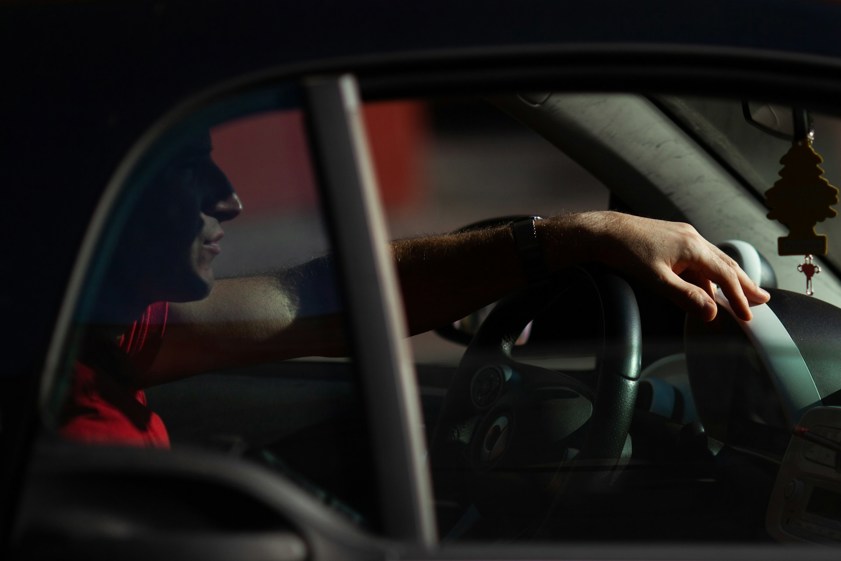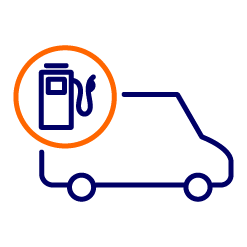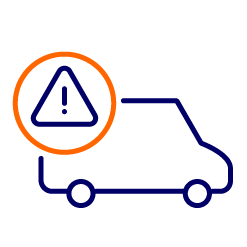
Keeping your van secure isn't just about protecting a vehicle, it's about protecting your livelihood. Whether you're a tradesperson, delivery driver, or run a business that relies on a van, downtime from theft can put real pressure on your day-to-day operations.
So, to help you stay safe and on the road, we've pulled together the essential van security tips every driver should know. We discuss:
Vans are valuable targets. They often contain tools, equipment, tech, or goods, and unfortunately, thieves know this. While modern vans come with strong security features baked in, criminals have become savvier.
For anyone considering leasing a van, getting the security right from the beginning isn't just smart, it's cost effective. A secure van is less likely to suffer downtime, less likely to require an insurance claim, and more likely to keep your business moving without interruption.

Thatcham Alarms
Most modern vans come with factory fitted Thatcham approved alarms or similar. A factory-fitted alarm can make your van a less appealing target. Look out for Thatcham-approved systems (Category 1 is the highest level) as they’re widely recognised by insurers and offer strong protection against forced entry.

Immobilisers
All new vans legally require an immobiliser, and for good reason. They prevent the engine from starting unless the correct key or fob is used, giving you a strong first defence against theft.

Deadlocks
Deadlocks add an extra mechanical locking point to the door, making it harder for thieves to force entry. Just remember to lock them manually as they don’t activate automatically.

Tinted or blacked-out windows
Tinted or privacy glass helps keep valuable items out of sight. If you’re considering adding aftermarket tints, always check with your finance provider first.

Lockable fuel caps & wheel nuts
With fuel theft rising, a lockable filler cap is a simple but effective deterrent. Locking wheel nuts also prevent wheel theft as they require a special key to remove.

GPS tracking system
A tracker won’t stop a theft, but it massively increases the likelihood of recovering your van quickly. Some insurers may even offer reduced premiums for vans with approved trackers installed.
If you want to go a step further, the right lock can significantly enhance your van’s security:
Perfect for delivery drivers or anyone in and out of the van regularly. The door locks automatically when it’s shut. No forgetting, no human error.
Sturdy, reliable, and difficult to pick. A good choice for drivers who often leave their vans unattended.
Catalytic converters can be worth hundreds on the black market. A purpose-built lock or cage helps prevent thieves from accessing it underneath the van.
Tip: If you fit any aftermarket equipment, always choose Thatcham-approved devices and confirm with your van finance provider first.
“You can’t remove the risk of vehicle theft entirely, but you can make your van a far less appealing target. A few simple habits go a long way in reducing the chance of anything happening.”

Even with great built-in protection, your daily habits play a huge part in keeping your van safe. Here’s how to reduce the risk even further:
1. Keep your key fob safe
Keyless-entry theft is on the rise. According to the BBC, of the 100,000 vehicles stolen in the UK in the last 12 months, between 60% and 70% of these were keyless models.
Thieves can intercept and amplify the signal from your fob unless its stored securely. Use a signal-blocking pouch at home and avoid leaving keys near doors or windows.
2. Park smart
Choose well-lit, busy areas whenever possible. If using a car park, look for CCTV or Park Mark-approved locations. At home or work, consider motion-activated lights or lockable gates.
3. Don't leave valuables in sight
Tools, tech, bags, and loose belongings can all tempt opportunistic thieves. Remove what you can and keep anything left inside completely hidden. A simple “No tools left in this van overnight” sticker can also deter break-ins.
4. Lock the van every single time
It sounds obvious, but even brief moments of distraction create opportunities for theft. Get into the habit of locking all doors and windows, even if you’re stepping away for a few seconds.
5. Keep a reconrd of what's inside
Make a simple inventory of tools and equipment. This is invaluable if you ever need to make an insurance claim. You can also register items with databases such as Immobilise to help with recovery.
6. Set rules for anyone else using the van
If employees or partners also use the van, make sure they follow the same security steps. Consistency is key.
Van insurance is typically higher than standard car insurance because vans often carry high-value items. Improving your van’s security can help reduce your premium, or at least stop it increasing, but more importantly, it lowers the chances of a costly claim.
Before making any security upgrades, always check with your van finance and insurance provider. Some add-on equipment is classed as a modification, and you’ll need approval before making changes.
If you're already leasing a van with us and want to check whether your security setup could affect your insurance, give our team a quick call on 0345 811 9595. We're always happy to help.
If you’re considering a new or replacement van, it may be worth looking at models with stronger built-in security as standard. Modern vans come with impressive protection that can give you peace of mind and help reduce business downtime.
Originally posted: 17th November 2025

